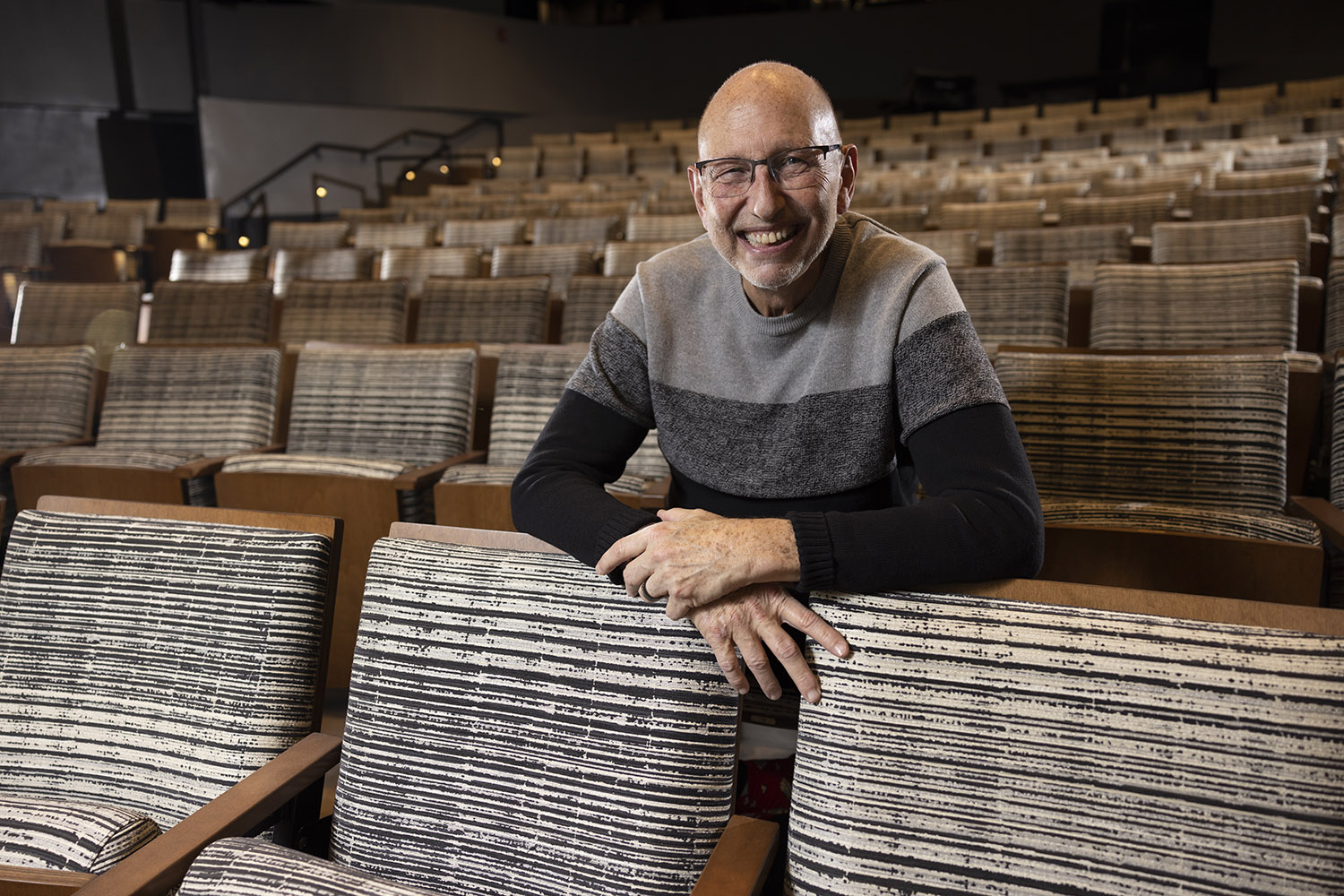
Why does the spring semester seem to zoom by so quickly? I can't believe that it's almost spring break, sorely needed and appreciated by our community, and that we already have several productions successful productions behind us: The Wolves and DanceTech. Ahead, we look forward to our exploration of new works, Frontier Fest, and the delightful musical that ends our season, Xanadu.
Aside from teaching and producing theatre and dance, the thrust of this semester has been dedicated to putting together a massive (think well over 200 pages) report for re-accrediting our program with the National Association of Schools of Theatre, helmed by Professor Mallory Prucha, but with contributions from our entire faculty and staff. It's called a Self-Study, and it describes and analyzes in detail every aspect of our program.
While the task is onerous, it certainly represents a time for reflection, as did dance this fall when we welcomed visitors from the National Association of Schools of Dance to assess that program.
When reading over the document one more time, I thought I'd briefly share a segment from our introduction, summarizing some of what we accomplished this last decade:
At the last re-accreditation visit, the NAST team described existing spaces as the poorest in the college, with no real classrooms, a substandard and dangerous costume shop located under the stage of our proscenium theatre among mechanical spaces, a small faculty spread across offices all over campus, and little to no rehearsal spaces, all impeding effective delivery of programs.
Since 2015, the School has benefitted from the significant generosity of donorship taking the form of a new, world-class, theatre and dance complex, the first phase completed in the fall of 2019 and the second phase completed in the fall of 2022. The new facilities, combined with a rich array of programming, experiences designed to amplify an already strong curriculum, notable faculty artists, and encouragement to continue to expand and grow, reflects a much richer environment than during the last accreditation visit.
You may wonder why, when so many universities have programs that do not seek accreditation, we expend the effort and finances to have our program assessed by outside visitors. Our main reasons are: to belong to a community focused on curricular integrity in theatre education; to share in the governance of an organization that significantly betters arts and arts education policies at the national level; to affirm that our practices and policies, as a unit, embody standards that are current, relevant, and shared by a larger body of institutions; and to represent the excellence embodied by NAST accreditation, expressing the excellence of all programmatic offerings to our home institution offered through accreditation.
[By the way, I've been on the Board of NAST for six years and am now Chair of Ethics. At the upcoming conference, I'll be training new administrators and discussing the state of theatre and education in several panels, so I know firsthand the mission of this excellent organization and admire its standards.]
The Self-Study document assesses where we are, as a unit, at this particular moment in time. It acknowledges our existing challenges, explains our decisions concerning curricular assessment and revision, and clearly describes our entire program. It forces all of us to take a hard look at our program, taking into account where we've come from and where we hope to grow.
Not only does it review all of the signature programs that have helped to define our unit—WildWind Performance Lab, the Marfa Intensive, Theatre and Dance in the Community, our close relationship with the Burkhart Center—but it also explains the importance of travel, both national and international—for our students and for the research agendas of our faculty and staff.
We look very different than we did over a decade ago, but one through line is clear: we continue to strive towards excellence, always placing students and the community firmly in the center of all of our activity. A smart look towards the future always depends on an examination of the past, and while we eagerly await the NAST visitors this April, we remain proud of our mission:
The mission of the J.T. & Margaret Talkington College of Visual & Performing Arts (TCVPA) is to inspire and educate students by instilling the intellectual, artistic, and communication skills that prepare them for success in disciplinary achievement and in interdisciplinary collaboration, whether as performers, creators, investigators, or educators in visual arts, dance, music, or theatre. We prioritize students: world-class professionals offer programs that emphasize practice, theory, and experience in creating and studying imaginative work in traditional and contemporary formats. We provide all essential training for an outstanding education in art, dance, music, and theatre disciplines in integrative programs such as arts administration, and in interdisciplinary programs, whether within the Fine Arts, at the intersection of arts and medicine, or in new entrepreneurial areas emerging in the arts. We impart a distinctive education that bridges the gap between university and workplace.
And we thank you, our audiences, who continue to inspire, challenge, and support us. Without you, the arts do not exist—and we never forget that.
